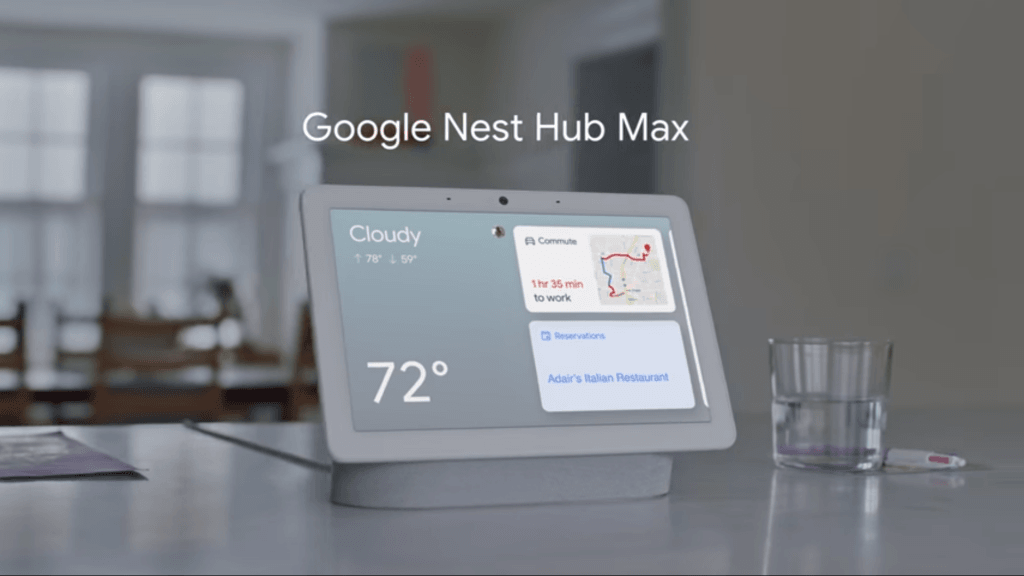When Facebook launched its Portal video-chatting device last year, the device was surrounded with controversies over user privacy. The social networking giant has now launched a second-generation Facebook Portal along with a Portal Mini and Portal TV. The new Facebook Portal will be competing with Google’s latest Nest Hub Max. Let’s check out how the two smart displays stack up.
Portal and Nest Hub Max are the newest offerings from Facebook and Google. While Portal has been priced at $179, Google’s smart display is a little more expensive at $229.
What you get with Facebook Portal
Portal sports a 10-inch HD display. The screen is adaptive, meaning it adjusts the color and brightness depending on the surrounding light. It features a 13-megapixel AI-powered Smart Camera that can track your movements during a video call, automatically panning and zooming to ensure you are in the frame. You can use Facebook Portal in both portrait and landscape modes.
The second-generation Portal gets a Smart Sound feature that reduces background noise and improves the sound quality of the built-in speaker. The Portal smart displays come with Facebook Messenger and WhatsApp to let you make video calls. WhatsApp calls will be end-to-end encrypted.
Portal allows users to stream movies and TV shows from Amazon Prime Video. It will also stream content from a number of other providers including CBC All Access, Starz, Showtime, Red Bull TV, Pluto TV, and more. You can download these apps on the device. For music streaming, it supports Pandora, Spotify, and iHeartRadio.
The Facebook Portal comes with built-in Amazon Alexa support, which is one of the finest AI assistants out there. Facebook has also added the “Hey Portal” functionality that lets users interact with the device without having to touch it. At this stage, Amazon Alexa appears to be better than Hey Portal.
The original Portal had received a lot of criticism over user privacy. Facebook has taken privacy seriously with this year’s model. The new Facebook Portal allows you to disable the camera and the microphone with a single tap. It also has a physical camera cover similar to Amazon Echo Show 5 to block the camera.
Facebook has also added a bunch of filters to add some fun. The Story Time mode turns video calls into interactive storybooks that you can read with your children.
Though Facebook has taken measures to protect user privacy with its new device, the company has a terrible track record of protecting user data. So, a lot of people wouldn’t feel comfortable putting a Facebook smart display in their living room or bedroom.
Is Nest Hub Max better than Portal?
Google’s smart display costs $50 more than the Facebook Portal. But unlike Portal, it works only in landscape mode. While Portal has a 13MP camera, the Nest Hub Max gets a 6.5-megapixel lens. The Nest Hub Max camera can also tilt, pan or zoom to follow you as you move around during a video call.
Facebook Portal gives you access to Messenger and WhatsApp – two of the world’s most popular messaging services – to make video calls. But Google’s device comes with Google Duo app, which isn’t wildly popular. There is a good chance that most of your friends and family members have never used Google Duo.
Google’s device has a 10-inch display and you have to set it up using the Google Home app. It also has a built-in ambient light sensor that automatically adjusts the display color and brightness to match the surrounding light.
Facebook’s device doesn’t use facial recognition, but the Nest Hub Max uses advanced facial recognition to track faces. If you are concerned about your privacy, you can use the digital kill switch to disable the camera, but there is no way to physically cover it.
The Nest Hub Max has a clean, intuitive and refined user interface that few companies can match. The search engine giant has also improved the built-in speaker to enhance the sound quality. The Nest Hub Max comes with Google Assistant, by far the most advanced voice assistant available to consumers.
Google’s software is quick to learn your preferences and personalize the experience. It shows you messages, reminders, and calendar entries. Since Google’s camera uses facial recognition, it will show you personalized notifications and messages when you tap on the screen. The device also recognizes gestures, allowing you to pause or resume video playback just by raising your hand.
If you like streaming media on your smart display, the Nest Hub Max has a much greater diversity of content than Facebook Portal. It supports YouTube, YouTube TV, YouTube Kids, DailyMotion, Starz, HBO Now, Crackle, Deezer, and more. For music lovers, it has Spotify, Pandora, YouTube Music and others.
Also, the Nest Hub Max has Chromecast built-in, allowing you to cast content to the smart display if you are connected to the same WiFi network.
Facebook Portal is affordable and has a lot of cool features, including Amazon Alexa support. Its biggest advantage over the Nest Hub Max is the availability of Facebook Messenger and WhatsApp for video calling. Both of them are much better than Google Duo. In all other aspects, the Nest Hub Max has an edge.












